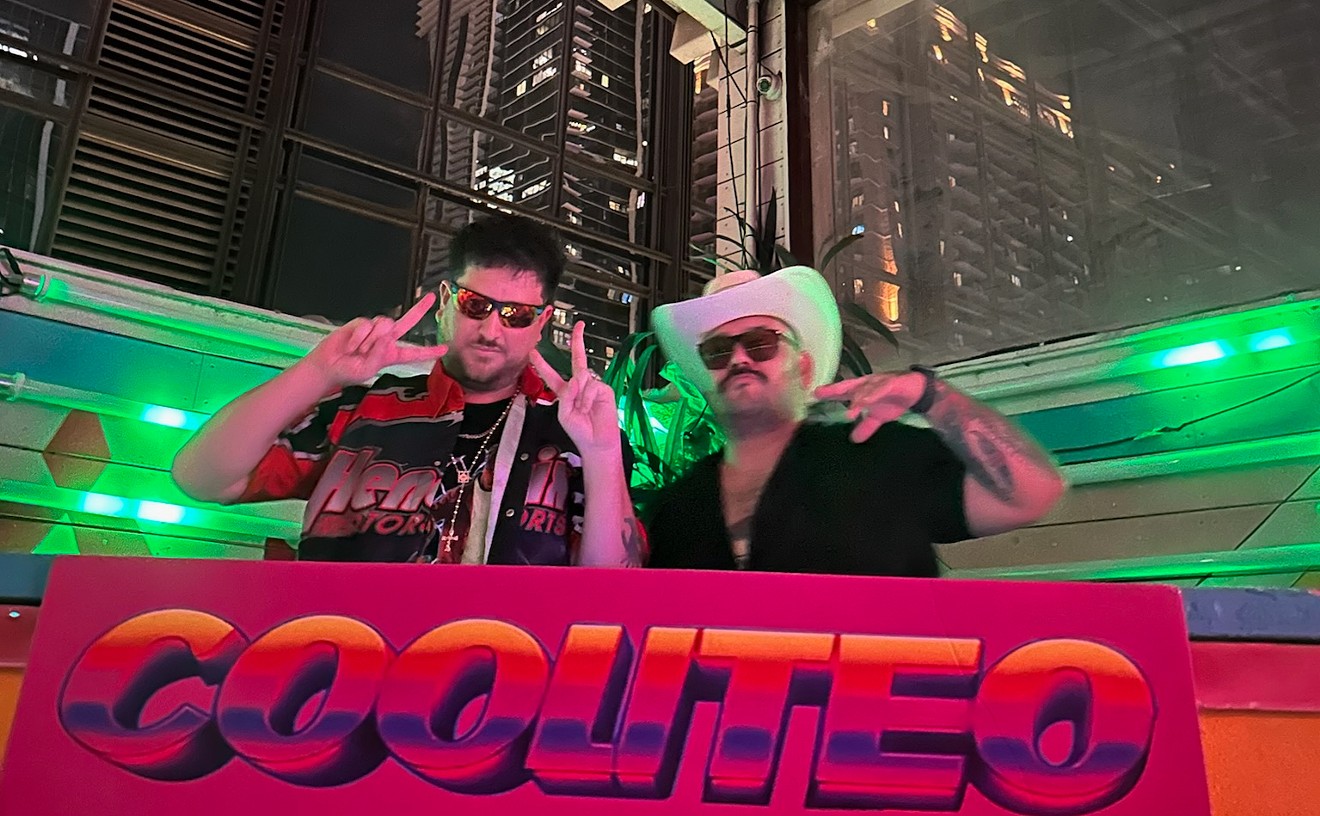At 8 p.m. Thursday, Jan. 27, Barre and co. are celebrating the 50th anniversary of Tull’s landmark album Aqualung with a special appearance by former Jethro Tull drummer Clive Bunker and a performance of the iconic album in its entirety along with other Tull favorites and selections from Barre’s recent solo triumphs.
Barre and Jethro Tull parted ways in 2012, when Ian Anderson, the group's flute-playing, jester-like frontman, decided to reconfigure the band as more of a solo endeavor. In the decade since, Barre turned his focus on songwriting and composition, something he had little opportunity to do in Jethro Tull.
“There wasn’t an availability because Ian was so prolific,” Barre says over the phone before a show in snowbound Michigan. “Now I have a lot of space to do that. I’m always up for the challenge and very driven to being a better writer, arranger and producer of music. I always try to improve on what I have as opposed to everybody else’s ‘conclusions.’ Everybody makes ‘conclusions’ about music and what is good and what is bad, but I prefer my own for better or for worse.”
Surprisingly, despite the wide-ranging styles that he has covered both with and without Jethro Tull, Barre says his own appetite for outside music is rather specific.
“Ninety-nine percent of music I hear, I don’t like,” he says. “I don’t like other guitar players, I don’t like saxophone. If there’s any music I like, it’s classical music. I’ve always loved it, that’s what I listen to for pleasure.”
Barre has said in the past that he avoids listening to other guitarists to preserve his own style of playing.
“I’ve been listening to great players for 50 years, and I admire what they do, but I don’t relate to it,” he says “I don’t hear a guitar player and think ‘I wish I could do that,’ because I’m happy with what I can do. I’m just not interested. I’m just trying to be a better music writer. In terms of playing, I think I’ve found my niche and I have no plans of getting out soon.”
Whether this method of "preservation" is more or less effective than others, Barre says every person should have their own methods.
“I think you get to the same place,” he says. “You can learn guitar from having lessons or watching YouTube videos or figuring it out yourself, but you end up in the same place.”
That being said, the remaining 1% that Barre does enjoy is somewhat surprising.
“I like virtuoso bluegrass,” he says. “Banjo and mandolin music is fabulous. Some folk music, too, Scottish and Irish folk music. A tiny bit of blues. But classical music gives me everything I want. It’s got all of those genres in it, you just got to find them.”
Since fully committing to his solo work, Barre has released four albums in the last decade and has more material on the way, a creative explosion from someone whose first writing credit (the title track of 1975’s Minstrel in the Gallery, a credit shared with Anderson) came six years into his tenure with the band and whose first sole credited piece came three years later (“Quatrain” from Tull’s live album Busting Out).
“I’ve been doing it more in later years because I’ve had the motivation to do it,” Barre says. “I love writing music as a beginner. There’s a lot of room for improvement. If I have any aspirations in my career, it’s to be a better music writer.”
Barre says that he has no qualms about his newfound love for songwriting possibly being overshadowed by the towering legacy of his life’s work.
“I use the one to feed the other,” he says “If I play the music of Jethro Tull to 5,000 people, and I can play four of my own songs, that’s great. I’m happy to do that. I have no pretension as to why I’m here and why my audience is here, but in the back of my mind, my music will always be more important to me. It will always be there under the surface. To write a song that everybody knows, or to have a band come up and say ‘We play one of your songs on stage,’ It would be the best thing that could happen to me. The rest is bread and butter.”
On whether he feels like his recent burst of creativity can lead to artistic burnout, Barre says that he’s confident that isn’t coming soon.
“I haven’t found it harder yet, but I know a lot of people whose music writing has deteriorated,” he says with a chuckle. “I just hope it doesn’t happen to me for a long time and when it does, I’ll just stop writing. It’s very hard to be honest with yourself, and it’s very hard to give up something you’ve done all your life, but I’m very critical of what I do. I hope it stays that way.”
Barre says that if anything, the postponement of the last two years’ worth of live performances gave him a break and allowed him to creatively recharge.
“I had a great two years at home because I wrote music, I played guitar a lot, I played flute, I sort of caught up with life,” he says. “I didn’t mind it – financially it was a pig, but mentally it was quite refreshing. It’s a great thing to do at my age, just to sort of stop and take stock of everything. I’m in a good place. The band is back together, the four of us played Florida for a couple of weeks, and now we have the girls and Clive with us, so it’s really great.”
Barre's current band includes singer/guitarist Dan Crisp, bassist Alan Thompson, drummer Darby Todd, and singers Alex Hart and Becca Langsford providing vocals and supplemental instrumental backing.“I don’t hear a guitar player and think ‘I wish I could do that,’ because I’m happy with what I can do." – Martin Barre
tweet this
“I just try to give an audience what they paid to come and see and hear,” Barre says. “If someone tells me ‘I really like the way you do the Tull stuff, but I’m not sure about your stuff,’ it wouldn’t bother me in the slightest. I don’t have any expectations at all. If for every 10 persons that says that there’s one person that says they’d like to hear more of mine, then that’s a great balance.”
While the past decade has been Barre’s first as a solo performer and writer, it's not his first time making music outside of Jethro Tull. He played guitar on a number of records throughout the years, including notable turns on solo albums by Ten Years After keyboardist Chick Churchill in 1973 and King Crimson bassist (and then-future Asia vocalist) John Wetton in 1980.
“I like working with other people,” Barre says. “Particularly people I know nothing about because it puts you in a very open position where you’ve got to work hard and come up with something that works for them rather than for yourself. I think musicians that don’t get involved in a challenge like that are missing out on what music’s all about.”
Fortunately for Barre, that creative mission, and a little bit of snow in the Midwest, seem to be his only challenges in life at the moment. He's greatly enjoying the camaraderie of his new band, and life on the road is something he’s been used to his entire life.
“I make my home wherever I am,” he says. “I’ve done that all my life. It’s not particularly ideal, but wherever I lay my head I call home. It’s part of the nomadic lifestyle. For the past 50 years I’ve gotten used to it. It gets a bit sad, but essentially it works for me. I love my things — my guitars, my car, my garden, my collection of steam engines — but outside of that, I don’t miss them at all. They mean pretty well nothing, which is a healthy contrast. Nothing should be that important materialistically, so I can live without them.”
Despite his inner peace without material possessions, Barre does appreciate the presence of a tea kettle on the road. “With real milk,” he says laughing.
Barre says he's learned to appreciate the little things in life at this point — privacy, the company of his family and bandmates and being able to stop and smell the roses once in a while on the road. Every day he runs for an hour in whatever town he's in.
“You see things that other people don’t when they just sit in a hotel room; that’s the last thing I want to do,” Barre says. “I want to walk around and see what a place is all about. Most of the places I’ve already been to, so I know them, but I take an interest in where I am.”
The nature of life on the road has taught Barre plenty about life.
“People always say ‘You’ve traveled everywhere,’ but I haven’t really, I’ve just worked in lots of different places," Barre says. "We once played in India, but I can’t really say that I’ve ‘been’ to India. I’ve only been to the Sheraton in Mumbai, and that isn’t India. That’s just America in India. So, I’m not a true traveler, but I make the best with what I’ve got.
"You either fight your circumstances or you accept and enjoy them. We stop for a proper home-cooked breakfast if we can find a family restaurant. These are the things that make life easier, and they become more important than they normally would.”
As Barre gets called away for what is sure to be a frigid soundcheck, he ends the conversation on a positive note.
“I’m just happy with what I’ve got," he says. "Music keeps me busy. It’s my life, it doesn’t own me, but I certainly own it.”













